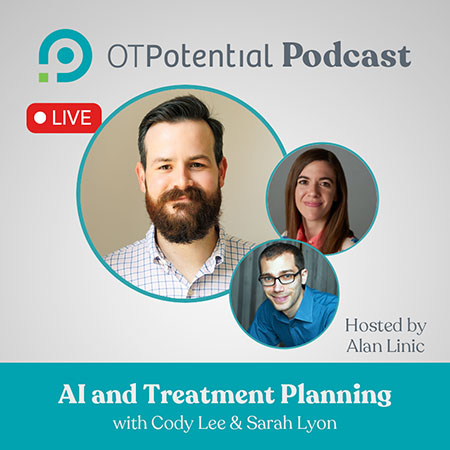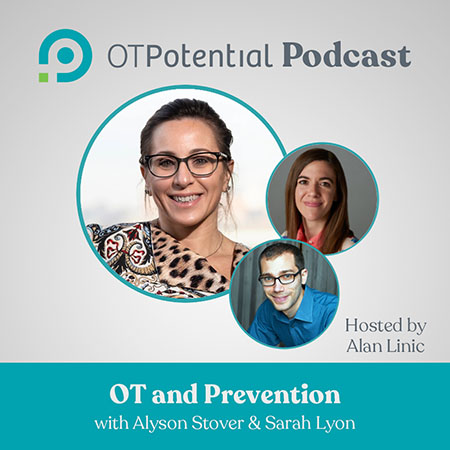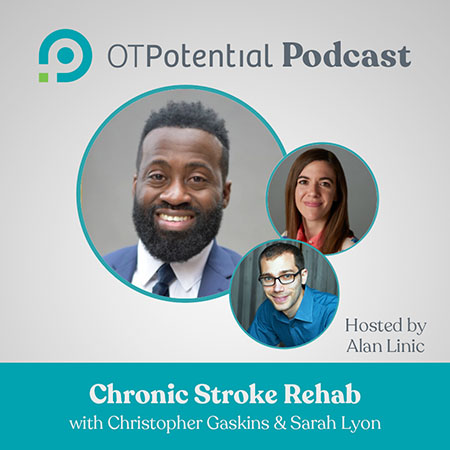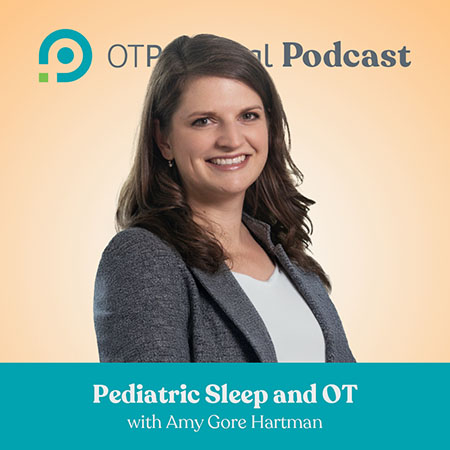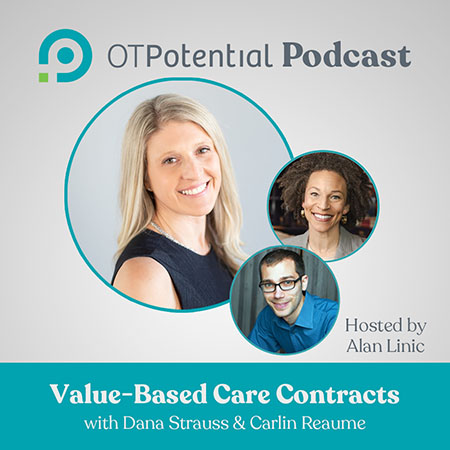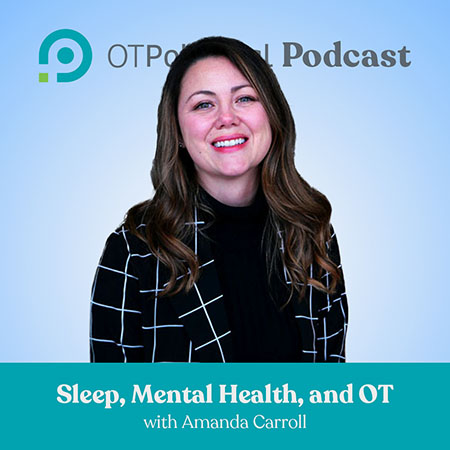Earn 1 hour of continuing education by joining OT Potential after taking this course.
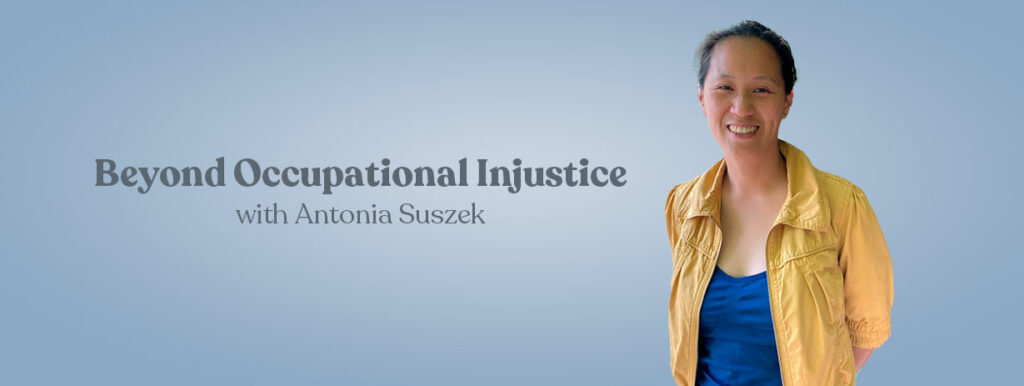
Listen: Apple | Spotify | Google
Any occupational therapy practitioner knows that we often face tough questions surrounding ethics and justice.
We work in imperfect systems, and each day we see how societal systems favor some, while placing others at a disadvantage.
So, how do we process all of this? And, how do we see ourselves as contributing to the greater good?
One framework that has been taught in many OT schools is “occupational injustice.” But, the article we will review is a critique of this familiar framework. And, instead, it will introduce you to the concept of “capabilities theory.”
To discuss how these big-picture questions impact how you show up as an OT—including how your work can help address unjust systems—we’ll be talking to Antonia Suszek, OTR/L, BCPR.
This course is designed to meet the OT ethics CEU requirements for Georgia, Illinois, North Carolina, Ohio, and Tennessee.
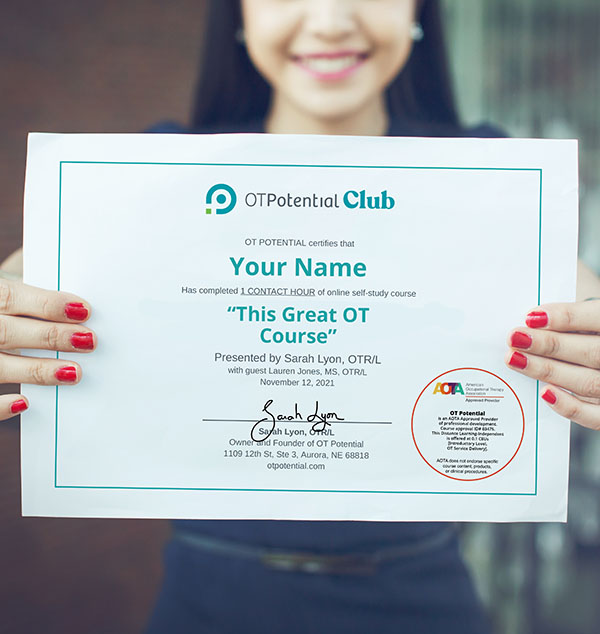
Earn 1 hour of continuing education
1. Listen to the podcast for free.
2. Sign up for the OT Potential Club.
3. Pass the quiz and download your certificate!
Primary Research Explored
When you log in, be sure to check out the OT Potential Club’s written breakdown of the following research article, then share your questions and thoughts with fellow practitioners.
Secondary Research
- Expanding beyond individualism: Engaging critical perspectives on occupation
- Doing Occupational Justice: A Central Dimension of Everyday Occupational Therapy Practice
Supplementary Reading
- Universal Declaration of Human Rights, United Nations
- Occupational Therapy and Human Rights, WFOT
- Creating Capabilities, Martha Nussbaum
Learning Objectives
- You will be able to identify the primary critiques of “occupational injustice.”
- You will be able to recall the basic pillars of “capabilities theory.”
Agenda
Intro (5 minutes)
Breakdown and analysis of journal article (10 minutes)
- Why was this paper written?
- What is occupational injustice?
- What is the history of occupation injustice?
- The manifestations of occupational injustice and related critiques:
- Occupational deprivation
- Occupational alienation
- Occupational imbalance
- Occupational marginalization
- Occupational apartheid
- Further overarching critiques
- Advocating for a focus on occupational rights
- Advocating for a capabilities approach
- Authors’ conclusion and recommendations
- Takeaways for OT practitioners
Discussion on practical implications for OTs (with guest Antonia Suszek) (45 minutes)
- Occupational justice is written in our practice framework; should we feel uncomfortable critiquing it?
- Do you think that how we think about justice and injustice impacts the way we show up as OTs?
- Do you find practical value in the concepts behind occupational injustice?
- Did you find capabilities theory to be a helpful framework?
- The article seems to imply that self-critique and reflection are essential in pursuing justice; do you think that is true?
- What are some practical ways we can show up in a more “just” way for our clients?
- What are practical ways we can be involved in changing the systems around us to be more just?
- Moving forward, how do you hope to see the concept of justice guiding the occupational therapy profession?
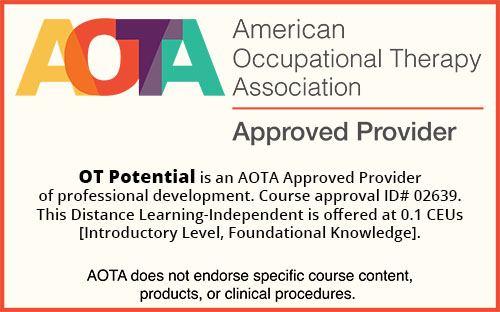
Instructional Methods/Registration/Special Needs Requests/Cancellation Policy
This course is an independent/self-study course delivered via podcast on iTunes, Spotify, Google Play & more.
If you need accommodations to take this course, please contact us and we will address your needs on an individual basis.
If we cancel a promoted course, event, live stream, or any other paid CEU offering prior to release, and you subscribe explicitly for said offering, you are eligible for a full refund if you did not complete and earn any other CEU quizzes or certificates during your subscription.
If a live webinar is cancelled that you signed up for, our system will automatically generate an email to you and if possible, we will inform you of the rescheduled date. Our most current webinar schedule will be found at: otpotential.com/live-ot-ceu-webinars.
Course Completion Requirements
In order to receive a certificate for this course, you must first participate in the podcast/webinar in its entirety. Then, you will need to take the quiz that will accompany the course and earn 75% or higher. If you pass, a certificate will be automatically generated and sent to your email. Quizzes for live (distance learning–interactive) webinars must be completed within 3 days of completing the webinar.
Target Audience/Educational Level
Our target audience is occupational therapy practitioners who are looking to learn more about occupational injustice. The educational level is introductory.
Financial and Non-financial Disclosures
It is the policy of OT Potential to disclose any financial and non-financial interest the provider or instructor may have in a product or service mentioned during an activity. This is to ensure that the audience is made aware of any bias of the speaker.
We here at OT Potential have no financial stake in this topic. Our guest, Antonia Suszek, has no financial interest in this topic to disclose.
Speakers
Antonia Suszek, OTR/L, BCPR
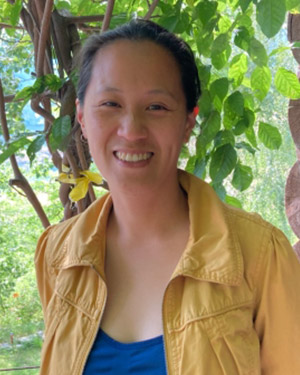
Antonia completed her undergraduate studies in music and religion at St. Olaf College. Before becoming an occupational therapist, she worked to develop leadership skills in young people through cooperative play. She also organized restaurant workers pursuing fair wages, paid sick leave, and equal employment.
While earning her master’s degree in occupational therapy from Rush University in 2014, Antonia was voted the student “who best exemplifies the seven core values and attitudes of occupational therapy practice.” She considers this a step up from being named “most attached to the desk writer” in second grade. Since graduation, Antonia has primarily worked in the acute care setting at Level 1 trauma centers, but she also has some experience in outpatient hand therapy and acute inpatient rehabilitation. Read full bio.
Sarah Lyon, OTR/L
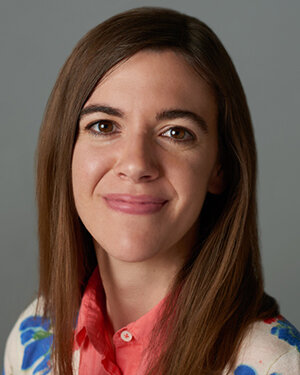
Sarah’s passion is helping fellow OT practitioners translate evidence into daily practice. Sarah earned her BA in religion from St. Olaf College, then earned her master’s degree in occupational therapy from New York University in 2011.
Since then, she’s worked in numerous facilities, including a critical access hospital, an acute trauma hospital, and a state inpatient psychiatric hospital. Sarah is the founder/owner of OT Potential. Read more about OT Potential here.
This course was designed to meet your continuing education requirements
We designed the courses in the Club to meet the requirements for “online” and “independent/self-study” courses. To verify the requirements from your specific state (within the US), check out our post, OT Continuing Education Requirements. If you are outside of the United States and have questions, please contact us.
We are proud to be an AOTA Approved Provider and to meet the requirements for your NBCOT renewal.
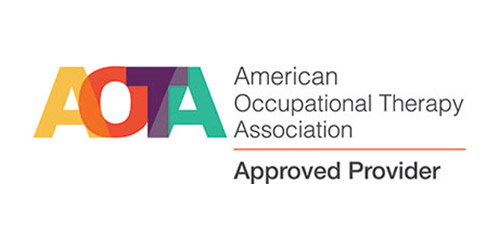
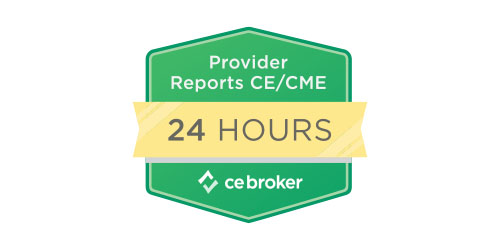
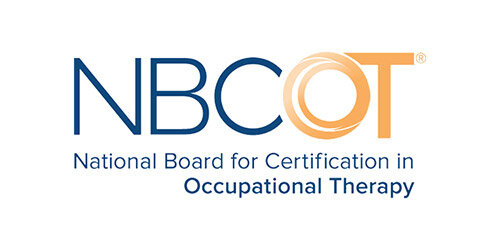
See our other OT courses!
Beyond Occupational Injustice with Antonia Suszek • OT Potential
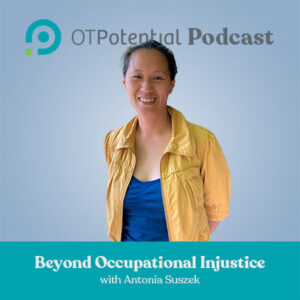
Today we’ll be covering “Beyond Occupational Injustice.” We’ll look at new research and discuss it with Antonia Suszek, OTR/L, BCPR.
Course Provider: Organization
Course Provider Name: OT Potential
Course Provider URL: https://otpotential.com/
Course Mode: Online
Start Date: 2021-07-12
Duration: 01:00:00
Course Type: Subscription
4.61

